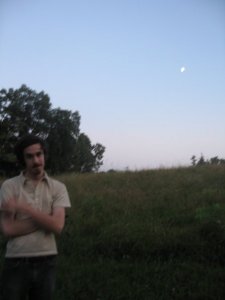 John T. Gates, Visiting Assistant Professor of Voice at Lawrence University, said recently that European opera productions are superior to American ones because their state-funded arts subsidization allows for radical experimentation and recontextualization of canonical operas, whereas in the U.S. we treat these works like untouchable sacred relics, and thus opt for marketable, traditional productions which stifle any possibility of an ongoing cultural dialogue about these operas.
John T. Gates, Visiting Assistant Professor of Voice at Lawrence University, said recently that European opera productions are superior to American ones because their state-funded arts subsidization allows for radical experimentation and recontextualization of canonical operas, whereas in the U.S. we treat these works like untouchable sacred relics, and thus opt for marketable, traditional productions which stifle any possibility of an ongoing cultural dialogue about these operas.It is interesting to consider Klaus Nomi (born Klaus Sperber) as a radicant artist and in terms of this notion of an ongoing cultural dialogue surrounding opera. As a child, before leaving his hometown of Essen, Germany, Sperber grew up listening to recordings of the American soprano Maria Callas and other opera divas from the golden age of recording. He learned to sing by modeling his own voice after theirs', developing a remarkable, though otherworldly falsetto. After a brief stint as an usher in a Berlin opera house, the starry-eyed Sperber moved to New York City, seeking a fertile cultural mecca in which to plant his roots, but instead found the artistic soil rocky and hard and had to take jobs as a baker to make ends meet when he was unable to find singing work. Shortly thereafter, Sperber (with the help of prominent New Wave artists) reinvented himself as Klaus Nomi, and performed with distinctive stage makeup and extraterrestrial costuming.
I see the Nomi persona as an acknowledgement of the detatchment felt by many (especially in this country) when confronted with "high art" (Gates' term, not mine) that feels alien and irrelevant. It is as if Nomi is saying, "If European opera embodies univeral truth and beauty, then a Martian should have the chance to sing it as well as Maria Callas." Klaus Nomi's deadpan, alien stage demeanor (which contrasts Callas' perfectly calculated emotional manipulation), as seen in his 1978 "New Wave Vaudeville" debut below, probably reflects more accurately the sentiments of American audiences who listen to Saint-Saëns than most Met or Lyric productions ever could.
In terms of Bourriaud's ideas of the radicant and altermodernity, Nomi's life seriously calls into question the ability of one to reroot in other cultures and demonstrates the failures of certain modernist universal ideals. In reaction to these failures, Nomi rooted himself (at least superficially) on a fictional plane of existence and produced some remarkable art in the space between the cracks of two different cultures. However, as documented in Andrew Horn's 2004 film The Nomi Song, the detachment this lifestyle took an personal enormous toll on Klaus, who died of AIDS in 1983.
Other Links:
Susan Sontag - Notes on "Camp"
More aliens singing opera


--If European opera embodies universal truth and beauty, then a Martian should have the chance to sing it as well as Maria Callas--
ReplyDeleteNomi not only sings European opera as a Martian, he does a convincing job of it. Does this mean that those modernist ideals really are universal?
Thanks for linking to Sontag. And really, what is going on with extraterrestial creatures singing opera?
ReplyDelete